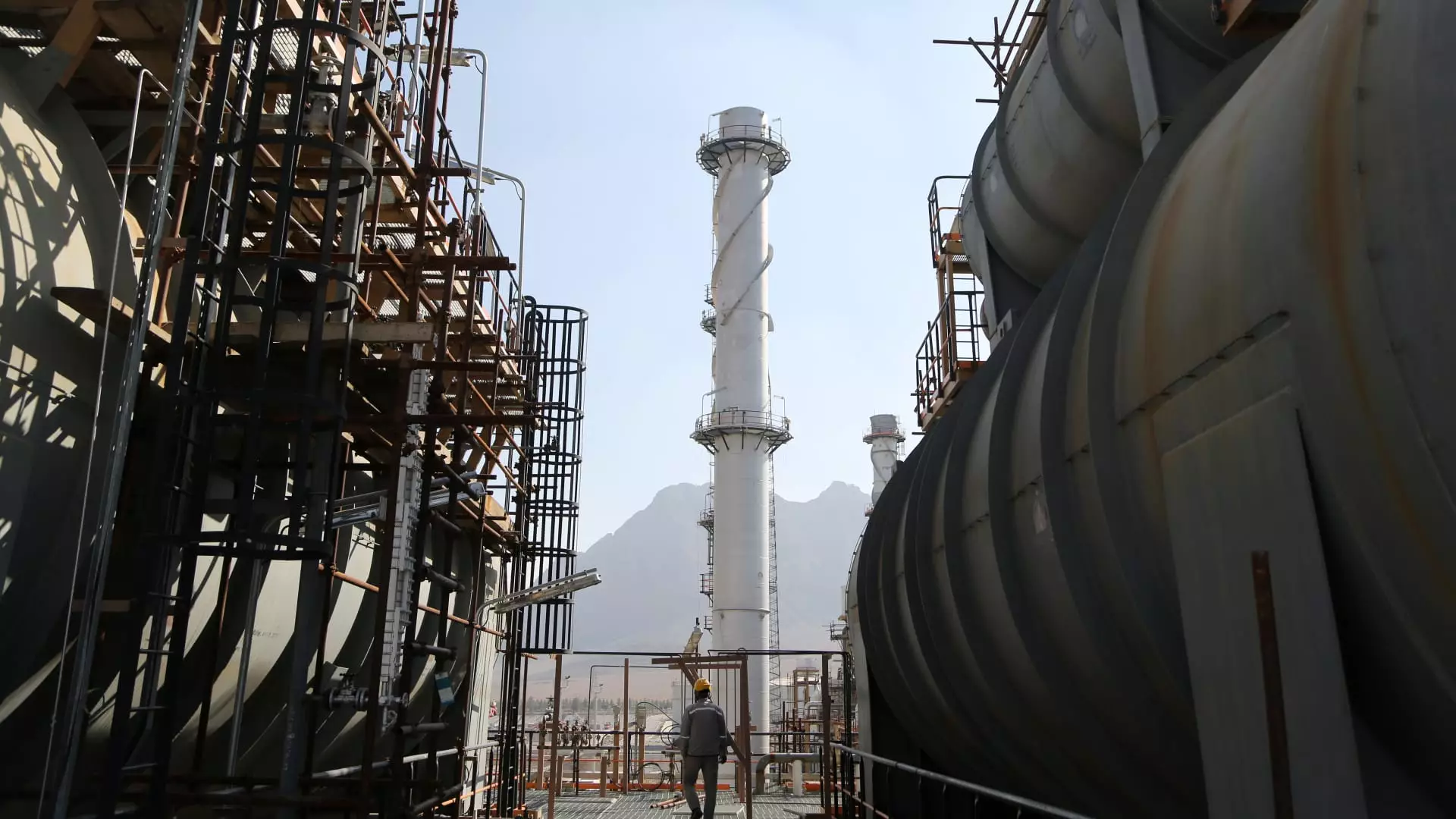The recent missile attack by Iran on Israel marks a significant turning point in the escalating tensions between the two nations and raises alarming concerns about global oil supplies. The missile strike was framed as retaliation against Israel’s actions, specifically the targeted killings of key figures within Hezbollah and Iranian military leadership in Lebanon. Such pronounced military aggressions ignite fears surrounding not only regional stability but also the broader implications for oil markets worldwide.
Analysts have begun to recognize an urgent threat to oil supplies due to this newfound aggression in the Middle East. Saul Kavonic, a senior energy analyst, noted that the prospect of a major disruption to supplies is now imminent. The conflict has reached a stage where up to 4% of global oil production could be at risk. This drastic potential for supply imbalances may push crude oil prices back to alarming levels of $100 per barrel if retaliatory actions escalate or if new sanctions are put in place against Iranian assets.
This level of risk comes after a long period characterized by “geopolitical risk fatigue,” where traders largely disregarded warnings about potential disruptions stemming from conflicts in the region. As the threat of instability is revitalized, oil prices reacted correspondingly, demonstrating an initial gain of over 5%, before settling with a more measured increase. Such fluctuations in oil prices, attributed to geopolitical tensions, reveal how deeply intertwined these two spheres have become.
The Implications of Military Action
Israel’s military actions, specifically its deployment of ground troops in southern Lebanon, have not only intensified its offensive against Hezbollah but also heightened the stakes for Iranian retaliation. Analysts suggest this situation could escalate into retaliatory strikes against Iranian oil infrastructure as part of Israel’s countermeasures. The immediate aftermath of the missile attacks saw Israel’s Defense systems intercept a majority of the incoming missiles, thus averting casualties, but these tactical reprisals do little to mitigate the looming threats to oil supply.
Bob McNally, the president of Rapidan Energy Group, introduces another layer of complexity to the conflict, positing that as Israeli focus turns from Gaza to concerns involving Iran, the war may enter a more energy-centric phase. The perspective outlined by McNally indicates that retaliatory actions will likely be significant and overwhelming, further exacerbating the precarious situation.
Prior to this period of renewed aggression, the oil market found itself under pressure from a confluence of factors, including rising production levels from the U.S. and weaker demand from China. This multifaceted environment made it difficult for oil prices to gain traction amid global uncertainties. However, the specter of conflict in the Middle East has a unique aura capable of swaying market sentiments at an unprecedented pace.
Recent observations outline an increase in heightened political risk, a sentiment echoed by others in the field, including Josh Young, the Chief Investment Officer of Bison Interests. Young’s analyses reveal that military escalations by Iran represent a marked increase of risk—which could lead to significant supply disruptions. If such disruptions do indeed materialize, forecasts place the price of oil at levels crossing the $100 per barrel threshold.
The trajectory of the ongoing conflict indicates potential volatility not just for the region but for the global economy as well. What began as a localized confrontation could swiftly transform into a significant contributor to energy market upheaval. The interconnected nature of geopolitical events and oil supply disruptions presents a complex web that stakeholders—ranging from governments to individual consumers—must navigate.
In light of the current developments in the Middle East, watching how these geopolitical shifts reshape oil markets becomes crucial. What happens in the coming weeks in this volatile landscape could determine not only the prices at the pump for consumers but also the broader implications for global economic stability. As tensions escalate further, the world observes with bated breath, bracing for what may come next in this intricate scenario.


Leave a Reply